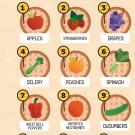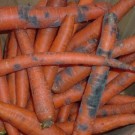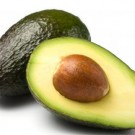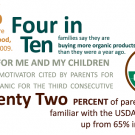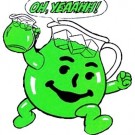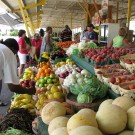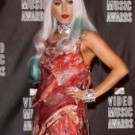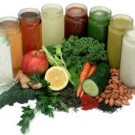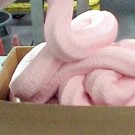
It used to be beef was what was for dinner. Not exactly, anymore and that goes for school lunches, too. Now the mystery meat that kids have joked about for so long in school cafeterias isn't a mystery anymore. Recently, we have realized how disgusting the stuff really is - and what grossness lurks, unlabeled, in many school lunches and grocery-store packs of ground beef.
Pink slime is made from slaughterhouse scraps: fatty cuttings and bits of connective tissue, mostly from the outside parts of the cow, the bits most likely to be contaminated by excrement. First the scraps are warmed... Read More

The illustrated edition of Michael Pollan's Food Rules comes out November 1st. Perfect to teach kids about healthy food habits! Check out the video excerpt below and let us know what you think.
So why does a salad cost more than a McDonald's Big Mac? Because of federal subsidies. This eye-opening image says it all. Meat and dairy account for a whopping 73.80% of federal food subsidies compared to 0.37% for vegetables and fruit. Ouch.
Thanks to MindBodyGreen.com and to PCRM for the great graphic.

According to a new report, a decrease in the demand for chicken meat means fewer chickens will be raised and slaughtered this year. The latest report from the U.S. Department of Agriculture states that although broiler chicken meat production for the first half of 2011 was 4.8 percent higher than last year, growth is expected to halt for the remainder of the year. The production is at an estimated 1.3 to 2 percent lower than 2010’s numbers.
In the last four years in a row, meat consumption has declined. Thanks to initiatives such as Meatless Mondays, the movie Food Inc.... Read More

First off, I will admit that I do eat meat. However, as I become more self-educated in nutrition I find myself moving away from eating meat. It does take time to unlearn from our old eating habits and to relearn and most importantly apply new, healthier habits. Below are some statistics to show why it’s worth it to eat more food grown from the Earth than taken from the flesh of an animal.
Of all antibiotics used in the U.S., 55% are fed to livestock.
In ... Read More




